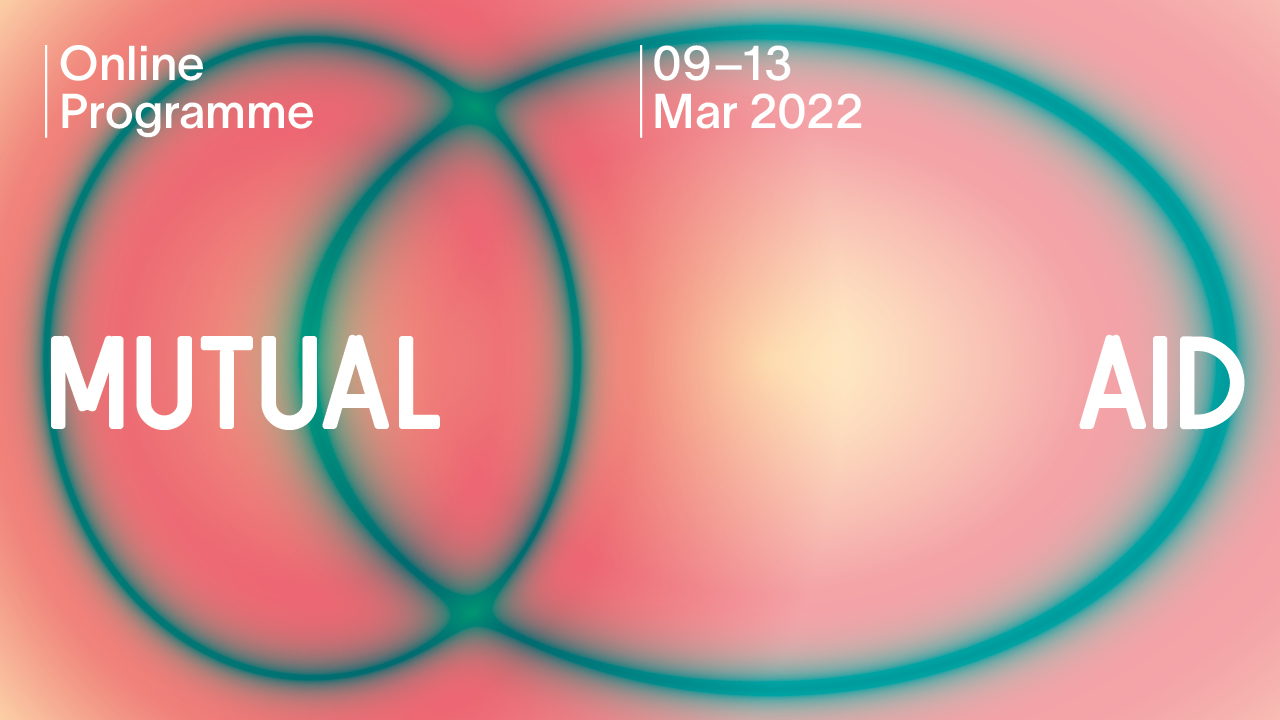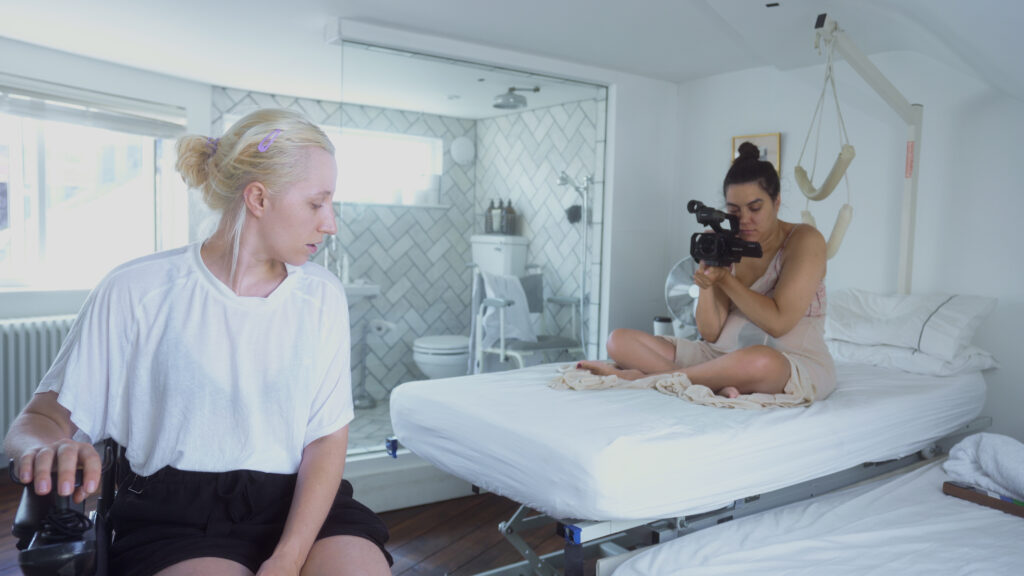
Mutual Aid
Solidarity
Intimacy
Criminalisation & Risk
Care & Collaboration
Motherhood & Kinship
4 days of workshops, discussions and artists presentations exploring the radical act of caring for each other while working to change the world.
ReadFeaturing: Abolitionist Futures, Helen Charman, Eli Clare, Aura Roig Forteza, Glasgow Prisoner Solidarity, Kyla Harris, Peter Krykant, Carolyn Lazard, Legal Action for Women, Lou Macnamara, Miss Major, Hil Malatino, Not One Rogue Cop, Juan Fernández Ochoa, Daniel Oliver, Claricia Revlon, Prisoner Solidarity Network, Nat Raha, Recovering Justice, Margaret Salmon, Dean Spade, Ubuntu Women Shelter, Mai’a Williams, Constantina Zavitsanos.
This project was developed by Arika along with a steering group of community organisers and artists from Glasgow and the UK.
“Around the globe, people are faced with a spiralling succession of crises, from the Covid-19 pandemic and climate change-induced fires, floods, and storms to the ongoing horrors of mass incarceration, racist policing, brutal immigration enforcement, endemic gender violence, and severe wealth inequality. As governments fail to respond to—or actively engineer—each crisis, ordinary people are finding bold and innovative ways to share resources and support the vulnerable. Survival work, when done alongside social movement demands for transformative change, is called mutual aid”.
Dean Spade – Mutual Aid: Building Solidarity During This Crisis (and the next)
Join us to listen, chat and think together as we ask, amongst other things:
How do we create durable movements to combat injustice, while also meeting the immediate needs of the people harmed by poverty, criminalisation, racism, transphobia, and ableism?
How do we think differently about criminalisation and risk, collectively working to find solutions to oppression, policing, incarceration and state violence?
How do mutual aid practices based on the lived and living experiences of people who use drugs help us to imagine the kinds of systemic change made possible when we prioritise people supporting each other?
If we follow Disability Justice practices that approach “care as an event” rather than as a “contract of exchange”, what becomes possible in how we know, care for, and appreciate each other?
How do practices of revolutionary motherhood and queer kinship rethink, shift and radicalise care beyond the domain of the nuclear family?
Programme Events

Mutual Aid on the Road to Abolition
Dean Spade Abolitionist Futures
How do we make the connections between the mutual aid practices of our daily lives and anti-capitalist efforts to dismantle wider systems of exploitation?

I Have Never Seen a Situation So Dismal That a Policeman Couldn’t Make It Worse
Not One Rogue Cop
A space to reflect on our own experiences with the police and explore more community and care-based ways of dealing with violence and difficulties in our lives.

Prisoner Solidarity in Practice
Prisoner Solidarity Network Glasgow Prisoner Solidarity
How do people both inside and outside of prison work together to dismantle the criminal justice system and build a society based on collective care?

Gesturing to What is Possible: Drugs Users Supporting Each Other
Peter Krykant Aura Roig Juan Fernández Ochoa
Rather than asking the state for services, what kinds of change are made possible when we prioritise people supporting each other?

Watch What Happens Live with Kyla Harris and Lou Macnamara
Lou Macnamara Kyla Harris
In true reality television style, this in-depth artist talk will tackle all the hardest-hitting questions and juiciest details about care, creative collaboration, and disability justice.

Neurotransgressive Fun Times: Time Travel Dyspractice Workshop
Daniel Oliver
In this workshop we will imagine ourselves as time travellers from a glorious and chaotic neurodivergent-led future.

Constantina Zavitsanos and Carolyn Lazard in Conversation
Carolyn Lazard Constantina Zavitsanos
Discussion: If we approach “care as an event” rather than as a “contract of exchange” then what becomes possible in how we know, care for, and appreciate each other?

Love Hangover
Hil Malatino Eli Clare Nat Raha
A joyful conversation discussing disability, gender transition and care labour as expressions of virtuosic and innovative skills that make care – good care – possible.

Support Not Separation
Ubuntu Women Shelter Legal Action for Women Recovering Justice
How do grassroots feminist organisations strategise relationships between mothers, parents, carers and their children based on respect and empowerment, in resistance to the practice of putting children in often the most uncaring of places – care.

Frequency of Touch: the Making of Motherhood
Helen Charman Margaret Salmon
This session focuses in on the defiant mutual aid practices of early and DIY feminist movements in the UK, that attempted to shift and radicalise care and kinship away from the domain of the nuclear family.

Chosen Kin: Making Our Loyalties
Mai’a Williams Miss Major Claricia Revlon
How do communities formed under the duress of violent othering and the joy of solidarity – such as ballroom culture, Black diasporas, Zapatistas – reform bonds of kinship?